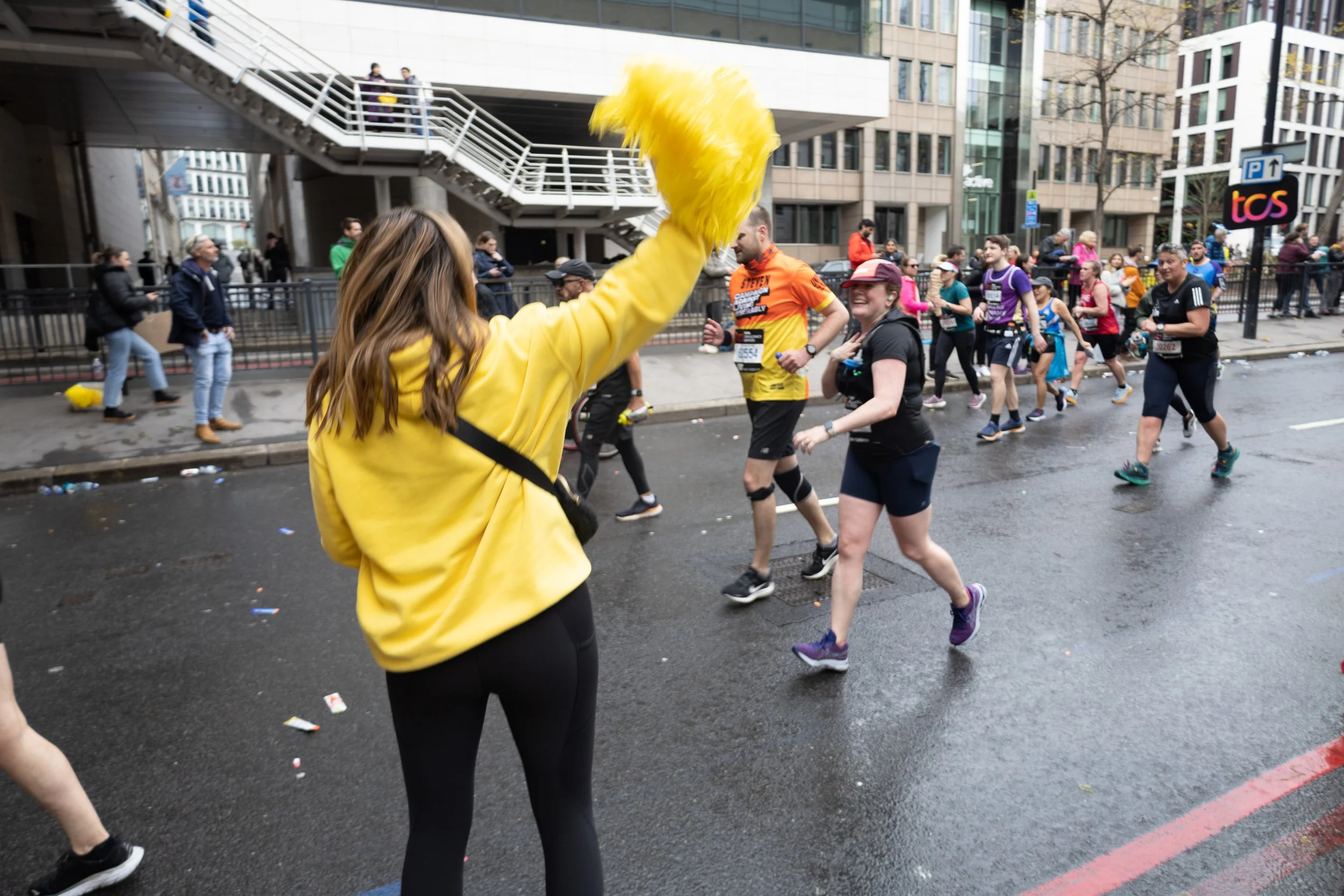Performance Boosting Marathon Nutrition
Ad: this post is in collaboration with Lifesum, the healthy eating app.
With London Marathon just a week a way now is a great time to nail your marathon nutrition strategy because what you eat can have a big impact on how you run and recover. I’ve caught up with Lifesum’s nutritionist Signe Svanfeldt to get her tips on how to fuel your marathon and smash your goals.
Why Good Nutrition Is Important
Good nutrition can make or break your marathon. Signe explains that “nutrition provides carbohydrates for quick release energy, protein for vital maintenance and muscle nourishment and fat as an energy source” and that following a diet that includes the right mix of carbs, protein and fat pre- and post-run can help to maximise both performance and recovery.
Carbohydrates
Carbs are your fuel, especially when you take on high-intensity training. Contributing to immune system strength, muscle building and recovery, carbs are stored as glycogen in the muscles and liver, but these stores are limited and deplete quickly which is why it’s important to keep them topped up.
simple carbs - digested quickly for fast energy, simple carbs are what you eat before and after a workout. Great options include bananas, dried fruit, rice cakes, porridge.
complex carbs - these take longer to digest and provide longer lasting energy as well as having higher nutritional value. Try including food like whole grain pasta, brown rice, root veggies or legumes at every meal.
Protein
Protein is a building block helping to build muscle and other tissues, as well as aiding recovery, and it’s something you should aim to include in every meal, especially if you’re in energy deficit when muscle can be used as fuel if you’re not eating enough. Whether you’re a veggie or a meat-lover there’s loads of great options to try like tofu, quinoa, quark, eggs, chicken, turkey and beef.
Fat
Fat is another fuel source, but it’s not accessed as easily as carbs so it’s mostly used for lower-intensity activity, as well as being a building block in the body and contributing to hormonal balance. Fat gets a bad rep, but it’s vital to maintain normal function so try to include food like avocado, salmon, nuts and oil in your diet.
“How you run and recover is highly impacted by your nutritional strategy”
When you’re training for a marathon you’re putting a lot of demands on your body, and you need to fuel it to keep up with those demands. Lifesum recommends a carb intake of around 60%, a protein intake of around 15% and 25% fat. Not sure where to start? Signe recommends checking out Lifesum’s Diet for Runners Meal Plan which is a science backed strategy that includes what to eat pre- and post-run to maximise performance and recovery.
A Marathon-Ready Breakfast
Marathon day can be stressful, but making time to get in a good breakfast can make all the difference. Signe suggests “focusing on eating a larger breakfast rich in energy, carbohydrates, protein and fat at least two hours prior to the race, for example, oatmeal with banana, peanut butter and Greek yoghurt or scrambled eggs on toast and banana berry smoothie.” My favourite pre-marathon breakfast is a white bagel with chunky peanut butter and a banana - I am so paranoid about deviating from this combo that I even took a packet of bagels with my to Paris before my first marathon!
As well as being stressful, the morning of a marathon can also be long! Hours can pass between leaving home and reaching the start line, so Signe recommends packing some snacks that are easily digested and rich in protein such as a smoothie made from Greek yoghurt and fruit. Try to avoid larger meals though, as this could lead to a dodgy tummy, which isn’t ideal on race day!
Hydration, Hydration, Hydration
I am obsessed with hydration because I know it makes a massive difference to my wellbeing and my running performance. You can totally nail your nutrition strategy, but if you’re not adequately hydrated you’re not going to be at your best. Signe explains that “as you sweat you lose salt so it’s important to replace electrolytes as well as water…how much fluid required is dependent on the individual; if your urine is dark, drink more liquids, if it’s light you’re probably hydrated” - trust me, once you get into checking the colour of your pee you’ll become obsessed with hydration too!
It’s not always easy to drink water during a race, so Signe suggests aiming for two sips every 15 minutes. Personally I like wearing a hydration vest during races because it means I’m hands free and don’t have to mess around at aid stations. I’ve used the same vest from Nathan Sports for YEARS (this picture is from my first marathon seven years ago and the vest is still going strong!), but I also really love the look of the DYNA 6 from Osprey because I know their packs are always amazing
Fuelling On The Run
I’ve already mentioned that your glycogen stores - which help fuel your run - are limited and get depleted pretty quickly so you’ve got to keep them topped up. So what should you eat during a marathon? Signe recommends sticking to simple carbs which can be digested easily for quick energy on the run. You can use products like energy gels (check out this post from Charlie all about the best tasting gels), chews (my favourite are watermelon flavour GU Chews) or energy drinks, but don’t discount ‘normal’ foods which can be much cheaper and easier to get hold of - I love a banana or a few Jelly Babies mid-run!
Eat To Recover
Nutrition doesn’t stop when you cross the finish line! Food plays a huge part in post-marathon recovery so once you collect your medal and have a cry Signe recommends hydrating to replace lost fluid and eating easily digestible carbs (like a banana or some crackers) to top up your glycogen stores and look after your muscles. Once you’ve showered and cried a bit more it’s time to fill up on a larger meal and personally post-marathon all bets are off as long as whatever I’m eating has lots of carbs, protein and fats, which funnily enough a massive burger and fries does! Over the next few days keep refuelling, you’ve done something huge and your body needs help to recover through food, Signe suggests trying meals like tofu and rice noodles or chicken with veggies that hit all your nutritional needs.
This post was written in collaboration with Lifesum. Lifesum is the world’s leading healthy eating app, helping over 55 million global users to improve baseline health through better eating. Whether the goal is to lose weight or simply have more energy throughout the day, the Lifesum app offers science-backed, personalised nutrition at scale and features a variety of meal plans, healthy recipes, trackers and more based on users’ goals, dietary restrictions and lifestyle. Visit Lifesum.com for more information.











